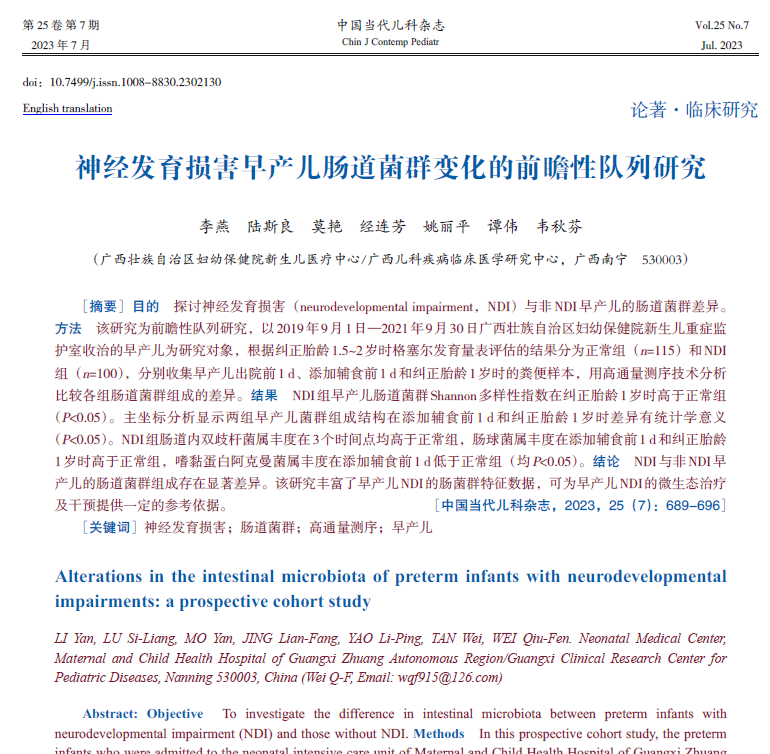 PDF(1311 KB)
PDF(1311 KB)


Alterations in the intestinal microbiota of preterm infants with neurodevelopmental impairments: a prospective cohort study
LI Yan, LU Si-Liang, MO Yan, JING Lian-Fang, YAO Li-Ping, TAN Wei, WEI Qiu-Fen
Chinese Journal of Contemporary Pediatrics ›› 2023, Vol. 25 ›› Issue (7) : 689-696.
 PDF(1311 KB)
PDF(1311 KB)
 PDF(1311 KB)
PDF(1311 KB)
Alterations in the intestinal microbiota of preterm infants with neurodevelopmental impairments: a prospective cohort study

Neurodevelopmental impairment / Intestinal microbiota / High-throughput sequencing / Preterm infant